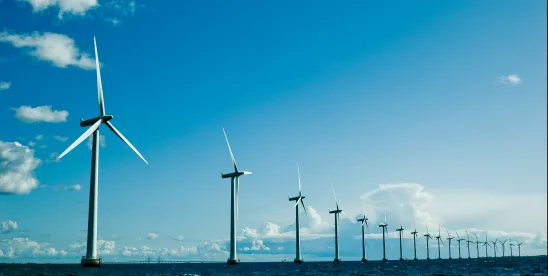BOEM Halts Construction of Empire Wind 1
On April 16, 2025, the Bureau of Ocean Energy Management (BOEM) issued a formal director’s order instructing Empire Offshore Wind LLC to cease all construction activities related to the Empire Wind 1 offshore wind project. The directive, citing concerns the National Oceanic and Atmospheric Administration (NOAA) raised about the project’s environmental analyses, stems from a broader offshore wind review President Trump’s January 2025 memorandum (90 Fed. Reg. 8363 (Jan. 29, 2025)) initiated. In the January 2025 executive order, Trump cited concerns over “alleged legal deficiencies underlying the federal government’s leasing and permitting of onshore and offshore wind projects,” which could lead to “grave harm—including negative impacts on navigational safety interests, transportation interests, national security interests, commercial interests and marine mammals.”
Although Empire Wind 1 had already received all necessary federal approvals based on a previous NEPA review and begun early-stage construction, BOEM invoked its authority under the Outer Continental Shelf Lands Act and 30 C.F.R. Part 585 to halt activities while the agency reexamines the project’s compliance. The directive requires Empire to remain paused until the review is complete and outlines potential enforcement actions for noncompliance. Work on the project has reportedly been halted.
State Officials’ Response
Gov. Kathy Hochul criticized the move, vowing to oppose what she characterized as federal overreach. “Every single day, I’m working to make energy more affordable, reliable and abundant in New York, and the federal government should be supporting those efforts rather than undermining them,” she stated. The federal halt also drew criticism from Rory M. Christian, chair of the New York State Public Service Commission (PSC), with both officials emphasizing the project’s scale and importance—delivering 800 megawatts of offshore wind energy, powering over 500,000 homes, and supporting more than 1,000 union jobs tied to the South Brooklyn Marine Terminal’s redevelopment.
Permitting Reversals and Political Instability
BOEM’s authority to halt offshore activities is grounded in the Outer Continental Shelf Lands Act and its implementing regulations. See 43 U.S.C. § 1337(p)(4); 30 C.F.R. § 585.102(b).
Federal action to stop work on previously approved projects is rare and typically limited to instances where agencies assert violations of those approvals rather than a re-thinking of the approvals themselves. The reversal of Empire Wind follows a separate determination by the Trump Administration to revoke the 2024 approval of New York’s congestion pricing program after completing environmental review under NEPA and SEQRA.[1] Congestion pricing is continuing right now, but the revocation decision is currently being litigated in the courts.[2] Both cases reveal that even where fully permitted, project sponsors and those financing these undertakings should not discount continued regulatory uncertainty during project construction. It is likely that eventually court decisions will provide further guidance on the level of discretion that federal agencies have to rescind prior project approvals. However, until such guidance is forthcoming this new regulatory environment may lead project applicants to consider a reevaluation of risk allocation in construction agreements and financing for major infrastructure projects.
[1] See Final Environmental Assessment for the Central Business District Tolling Program, U.S. Dep’t of Transp., Fed. Highway Admin. (June 2023), FHWA Approval 88 Fed. Reg. 41999 (June 28, 2023); see also 23 U.S.C. § 109(h).
[2] See e.g., Metro. Transp. Auth. v. U.S. Dep’t of Transp., No. 1:25-cv-01413-LJL (S.D.N.Y. filed Feb. 19, 2025) (seeking declaratory and injunctive relief to prevent the federal government from rescinding prior approval of New York City’s congestion pricing program under the Value Pricing Pilot Program).; State of New Jersey v. U.S. Dep’t of Transp., No. 2:23-cv-03885-LMG-LDW (D.N.J. filed July 21, 2023) (challenging the Federal Highway Administration’s approval of New York’s Central Business District Tolling Program under NEPA and the APA based on alleged environmental and procedural deficiencies).




 />i
/>i

